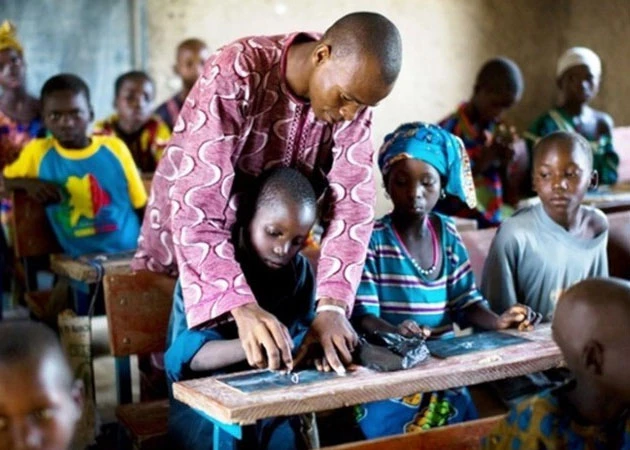The key to a future of sustainable development
Namibia has followed in the footsteps of Zimbabwe, Zambia and Malawi to become one of the pioneering nations participating in the campaign on ending learning poverty for all African people.
 |
| Illustrative image. Source: LEGATUM/VTV |
Launched amid an educational emergency, the campaign is expected to drive regional efforts to reverse the downward trend in basic education and lay the foundations for a more sustainable, equitable, and inclusive future for the African continent.
While many parts of the world are facing the rapid ageing of their populations, Africa stands out as a bright spot with its abundant young human resources - around 75% of the population is under the age of 35.
It is estimated that by 2030, around 50% of all new entrants to the global workforce will come from Africa. With the world’s largest youth population, Africa holds the golden key to unlocking a sustainable future.
However, gaps in the education system continue to prevent the region from fully exploiting the potential of its young population.
Against this backdrop, the campaign initiated by the African Union (AU) and the United Nations Children’s Fund (UNICEF), has emerged as a declaration of war against illiteracy. The campaign comes at a time when Africa is striving to address the tough challenge of improving the quality of education.
In recent years, despite government efforts across the region, the continent has yet to overcome the barriers to ensuring education for all.
One in four young Africans aged 15 to 24 is not in education, employment or training. Alarmingly, according to AU statistics, up to 90% of ten-year-old children in sub-Saharan Africa are unable to comprehend a simple written text or solve basic arithmetic problems.
Namibian President Netumbo Nandi-Ndaitwah stressed that “the fact that millions of African children are unable to read and understand a simple text at the age of 10 is extremely worrying”, and affirmed that this constitutes an educational emergency for the entire continent.
Experts believe that the mismatch between development levels and rapid population growth, prolonged conflicts, humanitarian crises, and insufficient investment in education are the main factors hindering Africa’s efforts to advance its education sector.
In reality, armed conflicts in Africa have become increasingly frequent and intense, forcing hundreds of thousands of people to flee their homes and depriving children of access to education. Alarmingly, schools are often targeted in acts of destruction.
According to the United Nations, countries such as Nigeria, Cameroon, Burkina Faso, Mali, and the Democratic Republic of the Congo are among the hardest hit by conflict, with schools frequently attacked by armed groups. This poses a double challenge for many countries in the region, which already lack the resources to invest adequately in education.
Education is widely regarded as a pathway to sustainable poverty reduction. Many experts warn that if children and young people are not given access to adequate education, the quality of Africa’s workforce will remain stagnant, causing a vicious cycle of illiteracy and poverty from one generation to the next. This could have unpredictable and severe consequences for development.
In fact, youth unemployment is reaching alarming levels. According to UNICEF, every year, 11 million young Africans enter the labour market, but more than 40% of them lack the skills required for employment.
AU Commission Chairman Mahmoud Ali Youssouf has warned that the continent’s young workforce is facing a serious lack of job opportunities. Without sustainable solutions, youth unemployment will directly undermine long-term economic prospects and social stability across Africa.
Fully aware of the vital importance of education, Africa is now vigorously promoting the campaign. Providing children with pens and books means handing them the key to unlock a sustainable future for the continent.
NDO





READER COMMENTS